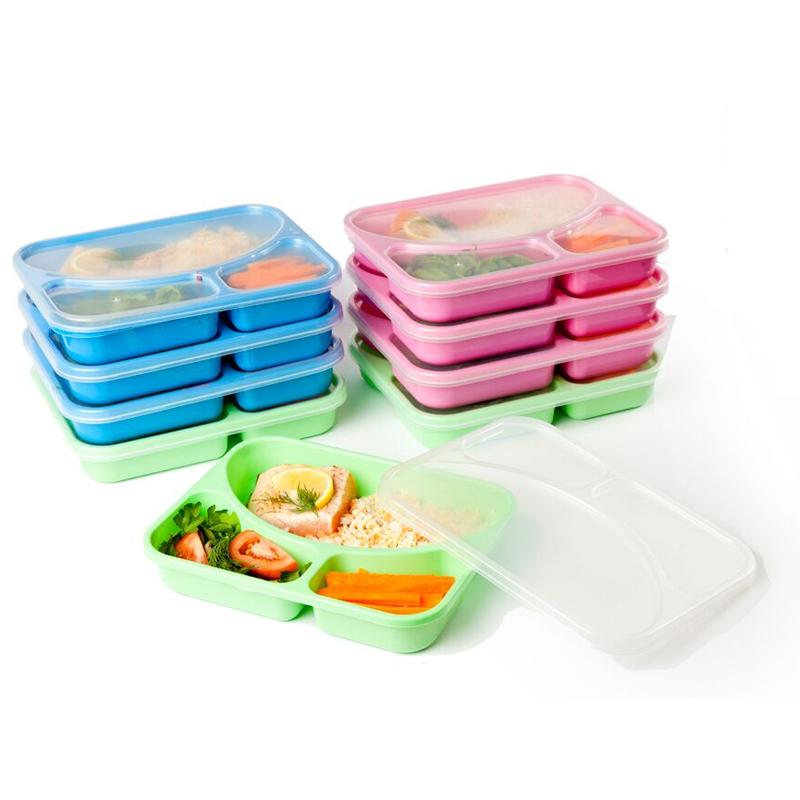Most households have a kitchen complete with a plethora of different types of kitchenware that can be used for all kinds of occasions. From forks and spoons to measuring cups to containers to store leftovers or a container to keep our coffee hot, there is no shortage of options.
Plastic kitchenware is also popular because it is relatively inexpensive to purchase and is versatile in use. But just how safe is the plastic kitchenware we are using?

Plastic and Food
Plastic is not a strange material to introduce to a kitchen. It is often used for both food preparation and storage and is a popular vessel to reheat leftovers in the microwave. Plastic kitchenware is a convenient solution to our food woes and is widely accepted with open arms.
Well, that was until we were made aware of the toxins that could be present in our plastic kitchenware.
BPA, or bisphenol A, is a common chemical that is used in food packaging and has been incorporated into several different plastic kitchenware items over the years.
There is also always the chance that small pieces of plastic can make their way into our food and this process is known as leaching or migration.
The migration of the plastic into the food had also been included as a warning on many plastic kitchenware containers too, and this process may increase when food is placed into the microwave while remaining in the plastic vessel.
So, while plastic kitchenware may be convenient and offers a more efficient way to store and prep food, should we be concerned?
The Existence of BPA
BPA is often used in lighter weight plastics and may be found in some baby bottles or water bottles. If high levels of BPA enter our systems, the effects on our health could be catastrophic. Elevated levels of BPA were found to cause disruption to the reproductive development and function of lab animals.
However, these amounts are still shown to be too low to affect a human in quite the same way.
Prominent levels of BPA can also cause a higher rate of diabetes, heart disease, and liver toxicity and studies are still being conducted to prove the validity of this concerning the amounts a human may have in their system.
What are Phthalates?
Phthalates are another group of chemical toxins that can be found in plastic kitchenware and are also commonly referred to as plasticizers. They can be found in many different products ranging from plastic to even perfume.
The phthalates present in the plastic covering the food we are consuming can also leach into the food in the same way that BPA does. However, studies are still showing there is minimal concern for its effects on a human, but more studies are being conducted.
Protecting Ourselves
So, how can we protect ourselves from the dangers of using plastic kitchenware containing these toxic materials? Look for BPA free plastic items. If it is not polycarbonate then it is going to be BPA free.
Polycarbonate has been FDA-approved to be used with food, and it is a much higher quality plastic material that is unbreakable and dishwasher safe. It also closely resembles glass.
If you are looking for plastic kitchenware that stands up to the standard and care of the other items you have in your home, then you want to find items that have been marked with quality and safety standards.
To keep the convenience of plastic kitchenware, you want to make sure that the plastic that is used in its construction is high-quality and has been designed to stand up to the higher temperatures of a microwave and the lower temperatures of a freezer.
The Bottom Line
When trying to decide if plastic kitchenware is safe for your household to use, you will have to do your research and read the labels before purchasing items made from plastic.
However, keep in mind that there are several options available at Life Story when you are on the hunt for safe plastic kitchenware to use in the home or on the go.ow
From reusable and easy to clean lunchboxes to plastic wrap, and microwave safe food storage solutions, you will find something useful for every occasion that are FDA approved, microwave and freezer safe, and 100: BPA free so that you can be guaranteed that your healthy meals will stay healthy.
These plastic kitchenware containers are all made to withstand whatever you may throw at them and are the ideal solution for both children and adults. They can also withstand being put into the dishwasher to allow for easier cleaning and maintenance and it will not interfere with the integrity of the high-quality materials used in their construction.

